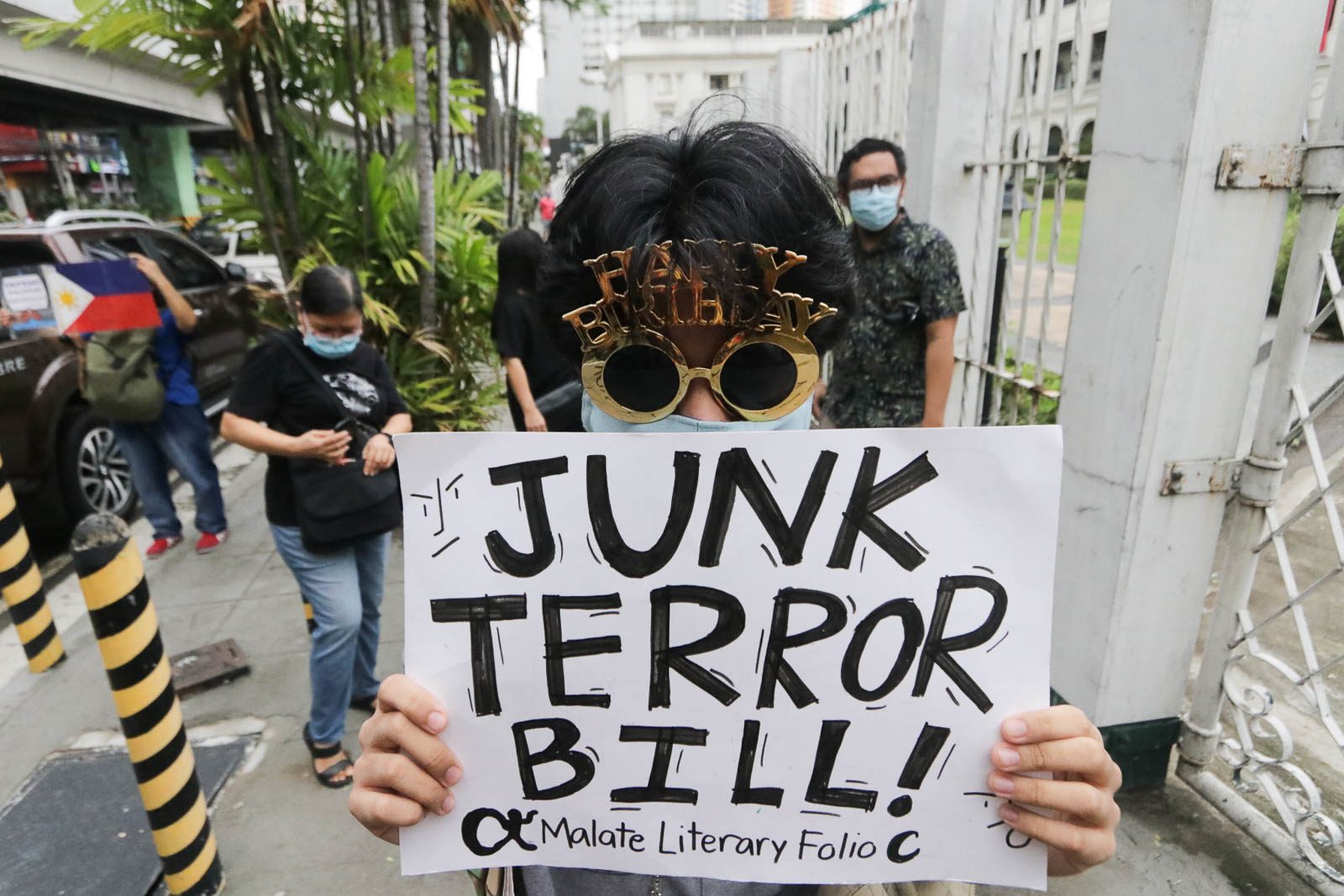SUMMARY
This is AI generated summarization, which may have errors. For context, always refer to the full article.

CEBU, Philippines – The University of Cebu (UC) Law School is the latest academic institution to join the calls against the anti-terror bill, and urged President Rodrigo Duterte to veto the measure and give it back to Congress for refinement.
The UC Law Faculty said there were 3 “major issues with the bill” which would impede on constitutional freedoms.
UC law professor Ria Lidia Espina, also the president of the Integrated Bar of the Philippines (IBP) Cebu chapter, said the definition of terrorism in the bill was sweeping and vague.
The anti-terror bill added new definitions to terrorism, which now include destabilization of political, economic and social structures of the country, and it also added new crimes such as inciting to terrorism. (READ: EXPLAINER: Comparing dangers in old law and anti-terror bill)
“We don’t really know who is a terrorist. Anyone can be suspected as a terrorist. As lawyers, we need to have legal bases and that is the fundamental law of the land,” Espina said.
UC Law joins most oppositions to the anti-terrorism council (ATC), an executive body, which is authorized under the bill to order the arrest of terrorists and their detention for up to 24 days.
“What is clear, though, is that the determination of who is a terrorist lies at the discretion of the Anti-Terrorism Council, a purely executive body,” said Espina.
Senator Panfilo “Ping” Lacson claimed that the council cannot order an arrest, but the bill is very clear that it can.
“The ATC’s authority to easily label an individual as a terrorist creates fear and instills a chilling discomfort among the people with dire repercussions on their right to free speech and expression and to peaceably assemble and protest the government for redress of grievances,” said UC Law.
IBP national chapter has earlier called the ATC’s powers unconstitutional.
“I have been a lawyer for 22 years now and I have not encountered these objectionable provisions that we found in the law. We found these provisions [from the ATB] to be riddled with ambiguities and flouts key human rights protected by the constitution,” said UC law professor Liza Eisma-Osorio.
“We felt that as educators and as part of the academe, we are bound to our duty to speak up,” said Espina. (PODCAST: Law of Duterte Land: Dissecting anti-terror bill and threats to freedoms)
Other schools which have opposed the bill are University of the Philippines (UP), Ateneo de Manila University, De La Salle University, University of Santo Tomas, and Lyceum University College of Law.
Human rights lawyers are up in arms against the bill, and joined activist groups in an Independence Day rally to amplify their dissent towards the “repressive” anti-terror bill.
In an earlier rally on June 4 against the anti-terror bill, activists and a bystander were arrested near UP Cebu. – Rappler.com
Add a comment
How does this make you feel?
There are no comments yet. Add your comment to start the conversation.